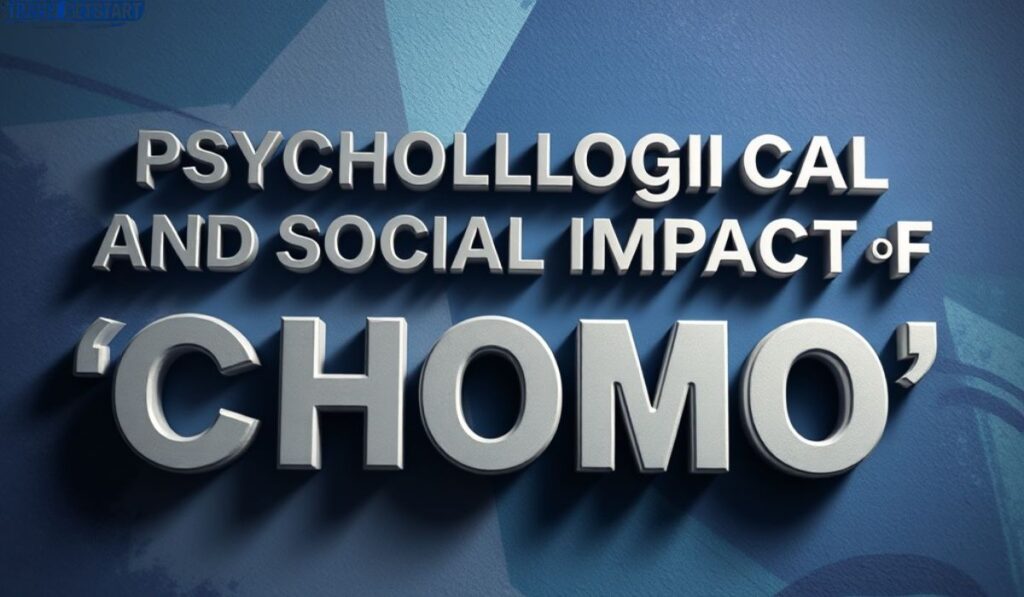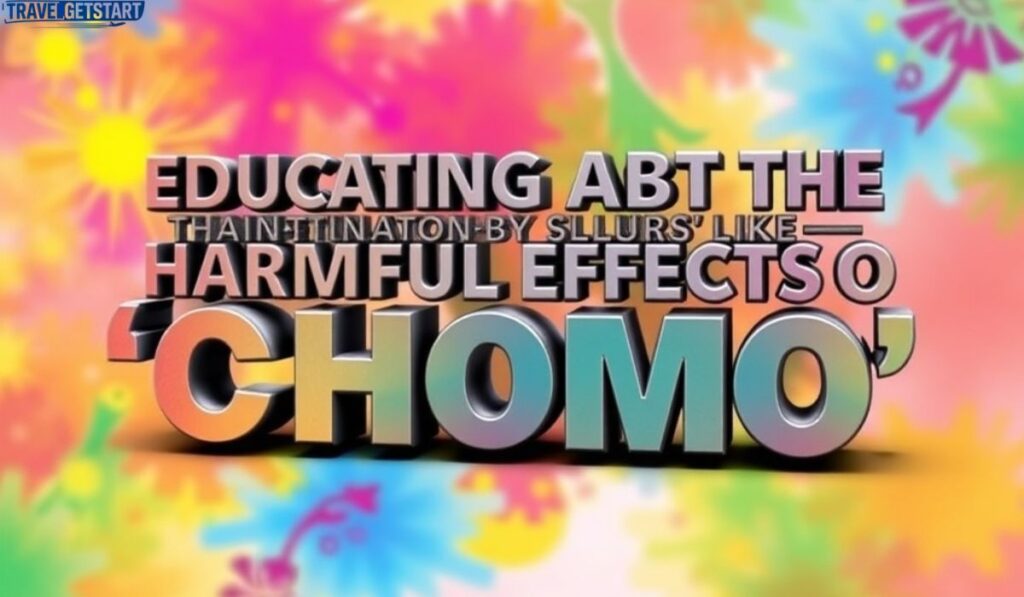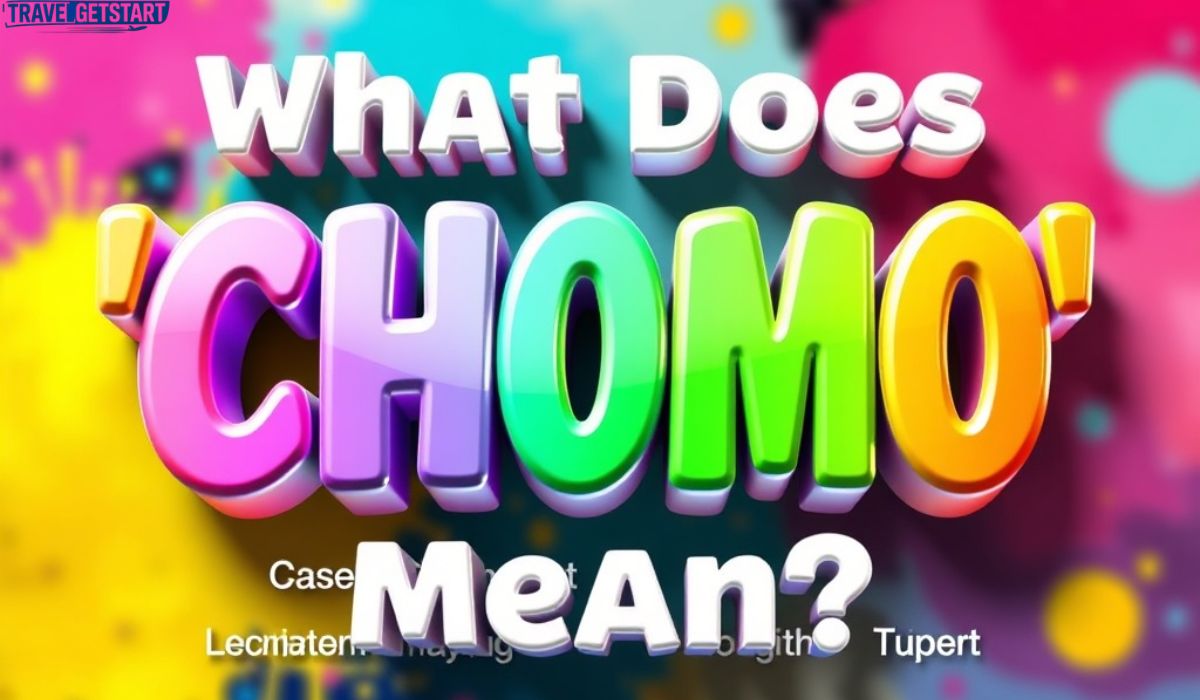The term “Chomo” is a slang word that has gained attention in various communities, often carrying a strong and controversial connotation. While it is sometimes used informally or in jokes, its meaning is serious and sensitive, typically referring to individuals accused of certain criminal behavior. Understanding the term’s background, origin, and how it’s used can help clarify its implications and the cultural weight it carries.
This complete guide dives into the etymology of “Chomo,” exploring where the term comes from and how it evolved over time. We’ll also examine the contexts in which it’s used, its impact on different communities, and the social and ethical considerations surrounding its usage. Whether you’ve encountered the term online or offline, this guide aims to provide a clear and respectful understanding of its meaning and significance.
The Meaning of “Chomo”
The term “Chomo” is a slang acronym derived from “child molester,” used primarily as a derogatory label for individuals accused or suspected of engaging in child exploitation or abuse. It’s often used in informal or online settings to call out or shame such behavior. Due to its strong negative implications, the word carries a heavy stigma and is rarely used lightly.
Beyond its literal meaning, “Chomo” has become a cultural term that reflects society’s zero tolerance for crimes against children. However, because of its sensitive nature, the word can sometimes be misused or thrown around carelessly, which raises ethical concerns about defamation and respect. Understanding the meaning of “Chomo” helps emphasize the seriousness behind the term and the importance of responsible language use.
The Origin and Evolution of the Word “Chomo”
The term “Chomo” originated as a slang acronym for “child molester,” first used in underground communities as a quick way to identify offenders. It gained traction mainly through online platforms where brevity and coded language were common.
Over time, “Chomo” evolved into a more widely recognized term, reflecting society’s strong condemnation of child exploitation. However, its usage remains sensitive, with ongoing concerns about context and potential misuse.
Early Prison Slang Origins
The term “Chomo” started as prison slang to label child molesters quickly and clearly. It served as a way for inmates to identify and isolate offenders within the prison system.
Prison culture often creates coded language that later influences outside communities. “Chomo” is one example of how prison slang can spread beyond prison walls.
Spread to Popular Culture and Online Use
With the rise of the internet, “Chomo” moved from prison slang into online conversations and social media. It became a blunt, often harsh term used to call out offenders or insult others.
Popular culture also embraced the word in discussions around crime, though its use online sometimes lacks sensitivity. This has sparked debate over its appropriateness and impact in casual settings.
What Does “Chomo” Mean in Prison Culture?
In prison culture, “Chomo” is a derogatory term used to identify and isolate inmates convicted of child molestation. It carries a severe stigma and often results in harsh treatment from other prisoners.The label is not just descriptive but serves as a social marker that affects an inmate’s status and safety. Being called a “Chomo” can lead to violence and exclusion within the prison community.
Prison Social Hierarchy and Stigma
In prison, those labeled as “Chomos” are at the very bottom of the social hierarchy. They face extreme stigma and are often targets of violence and isolation.
This harsh treatment reinforces the social rules and power dynamics within the prison system. The label ensures these inmates are ostracized and shunned by others.
Why the Term Is So Loaded
The term “Chomo” is heavily charged because it directly associates someone with one of society’s most reviled crimes. Its use carries deep moral condemnation and emotional weight.
Because of this, the word isn’t just an insult—it’s a label that can destroy reputations and lives, making it a very sensitive and powerful term.
How Is “Chomo” Used Outside Prison?
Outside prison, “Chomo” is often used in online communities to accuse or insult individuals, especially in discussions about criminal behavior. Its use is usually harsh and emotionally charged.Sometimes, the term is thrown around casually or without proof, which can lead to serious consequences. This kind of misuse can damage reputations and spread misinformation.
Use on Social Media and Internet Forums
On social media and forums, “Chomo” is often used to call out or shame individuals, sometimes without context or proof. It’s typically meant to provoke outrage or warn others.
The term spreads quickly in viral posts or heated discussions, where it can escalate tension and attract mob-like reactions.
Consequences of Misuse Online
Misusing the word “Chomo” online can lead to serious harm, including false accusations and public harassment. Even without evidence, the label can ruin someone’s reputation.
It also undermines real cases by making serious accusations seem casual or weaponized, reducing the impact of genuine awareness efforts.
Legal Aspects of Using the Term “Chomo”
Using the word “Chomo” publicly can carry legal risks, especially if directed at someone without proof. False accusations may cross into defamation or libel territory.While freedom of speech protects opinions, falsely labeling someone as a criminal is not protected and can lead to legal consequences.
“Chomo” Is Not a Legal Term
“Chomo” is a slang term, not recognized in legal or court language. It holds no formal legal definition or standing.
Despite this, its use can influence public perception and potentially bias opinions in legal or social settings.
Risks of Defamation and Libel
Calling someone a “Chomo” without evidence can be considered defamation, especially if it’s done publicly. This can result in lawsuits or legal actions.
Online or offline, spreading false claims can cause real harm, both legally and personally, to the person being targeted.
Psychological and Social Impact of the Label “Chomo”

Being labeled a “Chomo” can have severe psychological effects, including anxiety, depression, and isolation, even if the accusation is false. The stigma attached to the term often leads to extreme emotional distress and long-term mental health issues.
Socially, the label causes immediate alienation, loss of relationships, and public shaming. Once someone is branded with this term, it becomes difficult to restore their reputation or rebuild trust within any community.
Mental Health Effects in Prison
Being labeled a “Chomo” in prison can lead to extreme stress, fear, and psychological trauma. Constant threats and isolation often result in anxiety, depression, or suicidal thoughts.
Many inmates with this label are placed in protective custody, which, while safer, adds to feelings of loneliness and mental deterioration.
Outside Prison Impact
Outside prison, the label “Chomo” can destroy a person’s social standing and emotional well-being. Even unproven accusations can lead to job loss, isolation, and severe psychological strain.
The fear of public judgment and long-term stigma often affects personal relationships and overall quality of life.
How the Media Portrays “Chomo”
Media often portrays “Chomos” as the most reviled figures in crime reporting, reinforcing harsh societal views. News outlets typically use strong language and emotional framing when covering such cases.This portrayal fuels public outrage but can also blur the line between accusation and guilt, impacting how people perceive justice and fairness.
Representation in Movies and Documentaries
In films and documentaries, individuals labeled as “Chomos” are usually depicted as dangerous, sick, or irredeemable. These portrayals often focus on punishment and fear rather than understanding or rehabilitation.
While some productions aim to educate, others sensationalize the topic, contributing to stigma and reinforcing extreme public reactions.
Importance of Context in Media
Context is crucial when media outlets reference or portray someone as a “Chomo.” Without clear evidence or sensitivity, coverage can become harmful or misleading.
Balanced reporting helps distinguish between accusations and facts, preventing unfair judgment and protecting the integrity of public discourse.
Better Language Alternatives to “Chomo”
Using terms like “accused individual” or “person facing charges” is more neutral and respectful. These phrases avoid harsh labeling while still addressing serious issues.They allow for discussion without assuming guilt, especially in sensitive or legal contexts.
Neutral and Respectful Terms
Words like “offender,” “suspect,” or “defendant” maintain clarity without carrying the same stigma. These are commonly used in legal and professional settings.
Such language promotes fairness and prevents emotional bias in communication.
Why Alternatives Matter
Using alternatives to “Chomo” helps prevent public shaming and wrongful judgment. It supports due process and respectful dialogue, especially in media and online spaces.
Thoughtful language can reduce harm, protect reputations, and encourage more responsible conversations.
Educating About the Harmful Effects of Slurs Like “Chomo”

Slurs like “Chomo” carry heavy emotional and social weight, often causing lasting harm to individuals—especially when used casually or falsely. Education is essential to help people understand how such language dehumanizes and stigmatizes.Teaching the impact of these terms in schools, media, and communities can reduce careless use and promote empathy. Awareness can shift harmful cultural norms over time.
Raising Public Awareness
Public awareness campaigns can highlight how slurs affect mental health, legal outcomes, and public perception. Many people use terms like “Chomo” without fully understanding their consequences.
Bringing experts, survivors, and legal voices into these conversations helps create informed, compassionate dialogue. Awareness encourages critical thinking before repeating harmful language.
Promoting Responsible Language Use
Responsible language use means choosing words that are accurate, respectful, and free of unnecessary harm. Replacing slurs with neutral terms preserves dignity while allowing serious issues to be addressed.
Encouraging mindful communication—especially online—can prevent misunderstandings, false accusations, and the spread of hate. Words should inform, not injure.
The Future of the Term “Chomo” and Prison Slang
As more prison slang enters public speech, terms like “Chomo” may become more recognized—but not necessarily more accepted. Increased exposure can either normalize or challenge these terms, depending on how they’re used.Society’s evolving focus on justice reform and respectful dialogue could shift how prison slang is treated.
Will “Chomo” Become Mainstream?
“Chomo” is already known in certain online and cultural spaces, but its offensive nature may prevent it from becoming fully mainstream. Its harsh associations limit its broader acceptance.
However, media and social platforms could inadvertently normalize it through overuse. Whether it’s challenged or embraced will shape how language evolves around crime and punishment.
The Role of Digital Media
Digital media plays a huge role in how quickly terms like “Chomo” spread and gain traction. Social platforms can amplify both harmful use and education around such language.
Creators, influencers, and journalists have the power to shape the narrative. Their choices will impact whether slurs are normalized—or responsibly challenged.
Frequently Asked Questions
What exactly does “chomo” mean?
“Chomo” is a slang term used to refer to someone accused of child molestation.
Is “chomo” a legal term?
No, “chomo” is not a legal term but rather prison slang and informal language.
Where did the word come from?
The word originated in prison slang as a shorthand for “child molester.”
Is it offensive to call someone a “chomo”?
Yes, it is highly offensive and carries a strong stigma.
Can “chomo” have other meanings?
Generally, no; it specifically refers to child molesters in slang usage.
Conclusion
The term “Chomo” is a powerful slang word with roots in prison culture, primarily used to label individuals accused of child molestation. Its meaning and origin reveal the serious social stigma attached to the term.
Understanding its usage and cultural impact helps highlight the importance of responsible language. Being aware of the consequences encourages respectful and thoughtful communication in all contexts.





